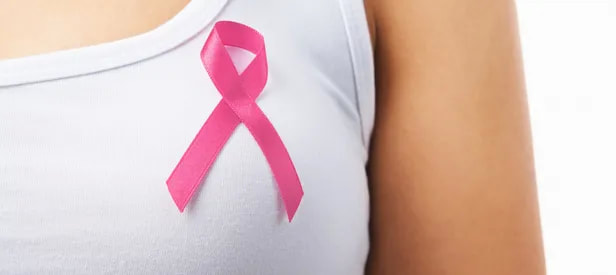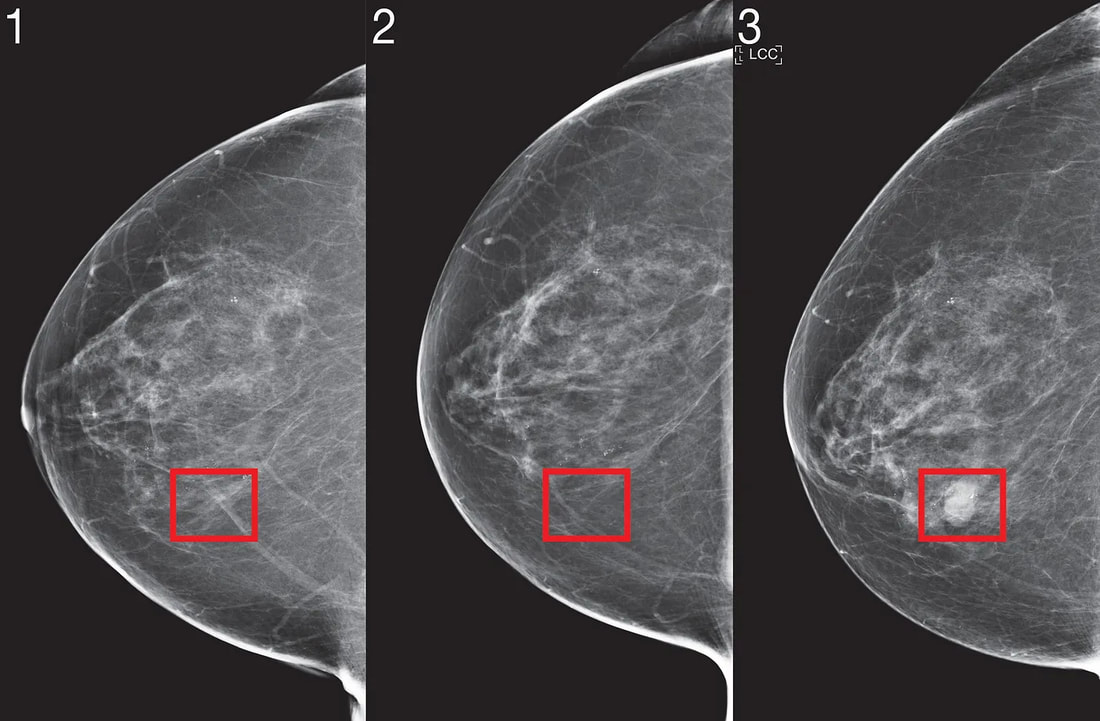|
Today, we will be discussing a topic near and dear to me: Breast Cancer. This is not a complete overview of all of breast cancers but an intro to helping anyone understand the epidemiology, screening, and risk factors for breast cancer. Breast cancer remains one of the most prevalent malignancies affecting women worldwide. Its epidemiology, screening modalities, and associated risk factors are critical areas of study and public health concern. Comprehensive understanding of these aspects is essential for early detection, effective treatment, and improved outcomes. In this article, we delve into the epidemiology of breast cancer, various screening modalities, the significance of family history, and other important risk factors. Additionally, we emphasize the importance of regular breast self-examinations, prompt medical attention for any concerns, and address the complexities of breast cancer during pregnancy. Epidemiology of Breast CancerBreast cancer is a multifactorial disease influenced by genetic, environmental, hormonal, and lifestyle factors. According to the World Health Organization (WHO), breast cancer is the most commonly diagnosed cancer and the leading cause of cancer-related mortality among women globally. The incidence of breast cancer varies across regions, with higher rates observed in developed countries compared to developing nations. Age is a significant risk factor, with incidence rates rising steadily with advancing age, peaking around 50 to 70 years of age. However, breast cancer can occur in younger individuals, underscoring the importance of early detection and screening initiatives. Screening Modalities for Breast Cancer Early detection through screening plays a crucial role in reducing breast cancer-related morbidity and mortality. Several screening modalities are available, including mammography, clinical breast examination (CBE), breast magnetic resonance imaging (MRI), and breast ultrasound. Mammography remains the gold standard for breast cancer screening, recommended annually for women aged 40 and older by organizations such as the American Cancer Society (ACS) and the U.S. Preventive Services Task Force (USPSTF). Mammography has demonstrated efficacy in detecting early-stage breast cancers, allowing for timely intervention and improved survival rates. Clinical breast examination, performed by healthcare professionals during routine check-ups, serves as a complementary screening tool to mammography, particularly in settings where access to mammography is limited. Breast MRI and ultrasound are adjunctive imaging modalities used in specific clinical scenarios, such as screening women at high risk of breast cancer or evaluating abnormalities detected on mammography. Importance of Family History and Other Risk Factors A family history of breast cancer is a well-established risk factor, indicating a genetic predisposition to the disease. Individuals with first-degree relatives (parents, siblings, or children) diagnosed with breast cancer have an increased risk of developing the disease themselves. Additionally, specific genetic mutations, such as BRCA1 and BRCA2, significantly elevate breast cancer risk. Other important risk factors include a history of radiation exposure (e.g., chest radiation therapy for Hodgkin lymphoma during childhood), previous breast biopsies demonstrating benign proliferative lesions, hormonal factors (e.g., early menarche, late menopause), obesity, alcohol consumption, and hormone replacement therapy. Breast Self-Examination and Prompt Medical Attention Breast self-examination (BSE) remains a valuable tool in breast cancer awareness and early detection. Women are encouraged to perform regular BSEs to familiarize themselves with their breast tissue and promptly report any new or suspicious changes to their healthcare provider. Although BSE alone is not sufficient for comprehensive breast cancer screening, it empowers individuals to take an active role in their breast health. Any concerns regarding breast changes, such as a palpable lump, changes in breast size or shape, nipple discharge, or skin abnormalities, warrant evaluation by a healthcare professional. Early diagnosis facilitates timely intervention and improves treatment outcomes. Bonus Topic: Breast Cancer during PregnancyNothing is more devastating than a diagnosis of breast cancer in a pregnant patient. Pregnant patients are already flooded with a myriad of emotions and challenges of the pregnancy itself and the calling of motherhood, making a breast cancer diagnosis, an emotional (and clinical) wrench in the gestational process.
Breast cancer diagnosis during pregnancy presents unique challenges due to concerns regarding fetal safety and treatment complexities. Delaying treatment in pregnant individuals with breast cancer is not advisable, as it may compromise maternal outcomes and jeopardize fetal well-being. Multidisciplinary management involving oncologists, obstetricians, and other specialists is essential to optimize treatment strategies while minimizing risks to both the mother and the developing fetus. In conclusion, breast cancer remains a significant public health issue globally, necessitating comprehensive strategies for prevention, early detection, and treatment. Understanding the epidemiology, screening modalities, and risk factors associated with breast cancer is crucial for healthcare professionals and individuals alike. By promoting awareness, encouraging regular screening, and fostering proactive healthcare-seeking behaviors, we can strive towards reducing the burden of breast cancer and improving patient outcomes. Eliel Arrey MD MBA Eliel Arrey, MD., MBA., is a health advisor, business advocate, entrepreneur, educator, and surgeon with a passion for Breast Oncology, Oncoplastic, and Cosmetic Surgery. History of Surgery series showrunner. He has been an educator for over 15 years and has vast experience teaching undergraduate students, nursing students, medical students, and resident physicians. Dr. Arrey is a physician at Grady Memorial Hospital in Atlanta and a Morehouse School of Medicine physician. He also serves as a faculty member at Kaplan, teaching Neurology and Surgery review courses to medical students worldwide. He is currently a PhD candidate in organizational leadership at Columbia International University. References:
0 Comments
The answer to there being a business case for quality in healthcare is a long, complex, and somewhat controversial one. Quality in health care as it pertains to optimal patient outcomes, safety, and efficient service are pivotal to patient centered care and one any human will agree to its improvement. On the same token, improving quality in health care is the fiduciary responsibility of all medical providers. So yes, we contend that there is a business case for quality in health care. The inability to truly quantify a positive financial return for quality improvement (QI) initiatives and the variety of reimbursement systems in healthcare are a couple of strong reasons why the business case for quality in healthcare is not as widespread as one would expect.1, 2 This short narrative will discuss how several issues in the healthcare business sector affect the business case for quality, and review a few suggestions of our own on why quality improvement programs in healthcare are more than just another expense but are programs that have a good return on investment that benefit all interested parties, with patients being at the forefront.
 Before we get into the meat of it all. When we do simple water tests, we usually just focus a few matrices. One of them is the TDS reading. TDS stands for totally dissolved substances. What does a TDS meter report? It measures the combined content of all inorganic and organic substances contained in a liquid (in parts per million, ppm). Could be anything really; agricultural and residential runoff, leaching of soil contamination and point source water pollution discharge from industrial or sewage treatment plants. The most common chemical constituents are calcium, phosphates, nitrates, sodium, potassium and chloride. More exotic, harmful elements of TDS are pesticides arising from surface runoff. Generally, a high TDS levels generally indicate hard water, which can cause scale buildup in pipes, valves, and filters that reduces performance and adds to system maintenance costs. (down side to hard water) The TDS readings we have been picking up in the local areas are way beyond and above that U.S. EPA maximum contamination level of 500ppm. Recently in the Red Oak, TX area I have personally come in contact with families drinking water with a TDS reading of 897ppm. And that should be a boil alert. However, if you consider the fact that pure water only should have a TDS reading between 0-15ppm (our personal standard is 0-5ppm) then it becomes clear that many families are taking in a lot of impurities. And I will invite you to do the same. Whenever you get your water tested, get a TDS reading and whenever you get a water treatment system have another reading done to see how improvement has been done. So with that said, the TDS reading of an average Ozarka bottled water was 26ppm (7 bottles were tested). Some bottles were higher and others were as low as 23ppm. We previously published an article that addressed dangers every consumer should be aware of and of those dangers, we stressed a lot the source of the bottled water and the quality. There are no regulations that require bottled water companies such as Ozarka, Nestle, etc, to report the make up of their bottled water. The 23ppm avg. could imply anything to a consumer. Once again, we've discussed why it is important for the consumer to purify his/her own water from home. Not only is it cheaper, there is greater deal of control and protection. More of our water tests and municipal water has been compiled by my team and is available to all who seek more information about the water we use everyday. Thanks Eliel Arrey, Water Treatment Specialist Eliel Arrey is a Leading Water Treatment Specialist and has helped numerous families in getting cleaner water in their homes and protecting their families from deadly pathogens. Visit http://www.yourhomewaterreport.com Eliel Arrey's expertise has proven to be one to take away all misleading information and deliver the best quality service and information so you can take your health to level it needs to be. Take charge and learn more about Eliel Arrey and Your Home Water, Go to my site and download your copy of my Free Report "Every 5 minutes in the U.S. over 2 million plastic bottles are used, Gone un-recycled, these plastic wastes will take up to 1000 years to properly START decomposing. What about the adverse effects it has on our ecology?"
Those heart punching details were summarized to me by a mentor a few months ago. As I studied and pondered continuously on the amount of bottled water consumed everyday, I being a hydrologist decided to write this short article about the 3 Dangers everyone Ought to know about their Bottled water. It's very easy with the upset or letdown of the economy for one to be very distracted from why 3 basic principles of life matter to us. You see, when we go to work every day, maybe at a dead end J O B or at our dream career, it is easy to forget and get side tracked as to why we really go to work. Or if you are in college, grad school, or any type of educational program it is sometimes easy to lose focus and get involved in other matters or too involved into what we are already doing. Hence forgetting why we were doing it in the first place. You pay bills in order to live comfortable or in order to live better. Whenever you start LIVING to pay bills then you're doing the right things for the wrong reason. Hence this article's purpose is just to highlight very quickly 3 fundamental aspects to everyday living. There are lots more out there but I decided to pick these three. Health, Time & Money.  Money: We work, offer value, service or products of every kind in order to make money or income. Sometimes income could be receiving goods instead. Could be me cleaning your house every day so you can fill up my car with gas every week. Money in this case to me is the gasoline you provide. Now, if I had everything I need in the world, then having cash or paper money (in any currency) is of really not much worth to me. Just real quick, Isaac Newton, one of my favorite scientists, when he was redoing the economic system for England he brought up the idea that England switch from coins (the coinage) to paper money. That idea was not well received because it was very foreign. Many types of council convened in order to find out if this was really the best solution to England's dwindling economy. Isaac Newton (and this always hits me when I think of it) said, to culminate all thoughts and questioning, that "Mere opinion is what will give MONEY its value." Think of it, mere opinion is what gives money its value. And that's the opinion that England instilled in its citizens and came out on top over every nation during that time. Isaac Newton did a lot more than invent Calculus, and Laws of Motion. Now think to yourself, what value have you put on money? Have you given money more value in your life than it should have? Is your quest for more money overruling the things that should really matter ex family, children, or even your happiness? Money is not, and cannot be your key to long term happiness, joy, or fulfillment. As a great mentor told me this past weekend, "There are and have been lots of people who have been filthy rich, but have lived miserable lives have left nothing but a dark legacy behind them (Joshua Fuson)." Please don't get me wrong, money is important and we need it to be able to have family vacations, gas, electricity at home, pure water running at home, etc. But don't chase after money so passionately that you forget the reasons to why you need it. So as you go to work every day, maybe you're working two jobs, or going to school full time and working fulltime, or a single mother, or someone that has all the tables turned away from you, please always and do not forget why you earn money. Look beyond your bills, look beyond your debts, and answer this question for yourself, 'Why do I really work?' And also if you had all the money in the world, what would you do with it?  Time: Time, time, time. I hear people say to me all the time, 'TIME IS MONEY!' 'Don't waste time!' 'I need to Leverage my time!' and so on, and so on. Well, what is time and what do you do with your time? Whenever I think of time, the first thing that comes to mind is the clock. Such a great invention because it helps us measure our time. And if you can measure anything, you can improve it. Measure how fast you type per minute, per hour, or even measure how many hours you slept in a day. Because of the great measuring tools we have we can improve and maximize our time. But What For? What do you do with our time? Why do you need any more time? Why should you live for another day beyond today? Please as you think of these questions answer them for yourselves individually. This is what goals are for because they are timed constrained and measurable but I wouldn't get into goals right now. That's a topic for another day and time. The key is that today you need to remember why you are alive and why you have another day in time to be on this earth. In my honors society one of our guest speakers once said, 'There two most important days in a man's life, the day he is born and the day he finds out why?' Now I have sought my own answers as to the purpose of my life and I invite you to do the same. Until you know why you are alive, your time appreciation will never reach its maximum value. If you had all the time and money in this world, what would you do? What is your biggest challenge to overcoming that objective now without all the time and money in the world? Will Smith once said, "I want the world to be a better place because I was here." Do you want the same thing for yourself or your family? You spend long hours working at your job but can your company say that 'You made the work place/company better because you were there?' Forget about the negativity of the media; forget about the turmoil around you; ignore the rumors of war and politics for a moment and think to yourself, 'What I am doing with my time?'  Health: As a premedical student I have come to realize that we don't really seek after preventions. The human mind by nature is always after a Cure, Secret, or Discovery. Then we forget about the basics. Most doctor-patient interactions happen when the patient visits the doctor seeking a cure. I also notice that with the families I serve by providing pure water, most of them had heard about the dangers of bad water, what hard water or soft water meant, increased cancer risks, etc. but none of them made any attempts to prevent the hazards but did everything possible when it was time for a cure. I lament when I see the charts of the diseases that reign in our culture like plagues, examples such as heart disease, diabetes, cancer, etc. Most of them related to out diet and lifestyle. Type II diabetes mellitus was much more common amongst adults but now I read the medical charts and its more common amongst the younger generations and teenagers. Our food quality is very poor, chemical exposures very high and personal self discipline almost gone. You need to take control of what you eat, because what you eat affects your health. Duh?! We all know that, but we don't all do it. Now is not the time to take any chances towards unhealthy living. Now is the time to regain control of one's own self and raise personal standards. You've probably heard the old saying, 'Your Health is Your Wealth' and it truly is. Now is the time to begin to think positively. A healthier diet produces a healthier you. Healthier you not just physically but mentally, emotionally, and physically. Now is the time you need to be careful of how you spend your money, your time, and how you protect your health. If you're reading this article and now wondering why would I select health, time and money? Remember, like I mentioned earlier, there are lots of important things but here is my objective with these three. In order for you to enjoy life to its fullest, you need to spend more time doing the things you are most passionate about. You need to be with what you value most. In order to do that you need to be watchful with your health. Because you only have one life, you only have one opportunity to fulfill what you believe is your objective right now on this earth. If you protect that health factor by monitoring your meals, your consumption of essential amino acids, fatty acids, minerals, vitamins and nutrients, the quality of your everyday water, and proper exercise and sleep; every Aspect of your life will change. You will bring to life that special person inside of you that is clogged down by unhealthy habits. If you remember why you work, why you spend money, when money is not always around your purpose of life will not be distorted. You won't feel like the world is over because your bank account in the negative. It will just be another challenge for you and not an End of the World problem. Money, whether you have lots of it or not, will not affect how you treat your loved ones, and those that really mean that world to you. If you value your time, then the urgency of success and accomplishment will return. Coupled with worthy goals, money will only give you the chance to actively and passionately continue to per sue that which you already love to do. You will begin to understand that there are many levels of 'financial freedom'. Avoid negative and pessimistic people who have no direction in their live but bring others down by their presence. Have a Wonderful Day, Make it Memorable. Eliel Arrey |
Eliel Arrey
Official blog of Eliel Arrey Archives
April 2024
Categories
All
|



 RSS Feed
RSS Feed
